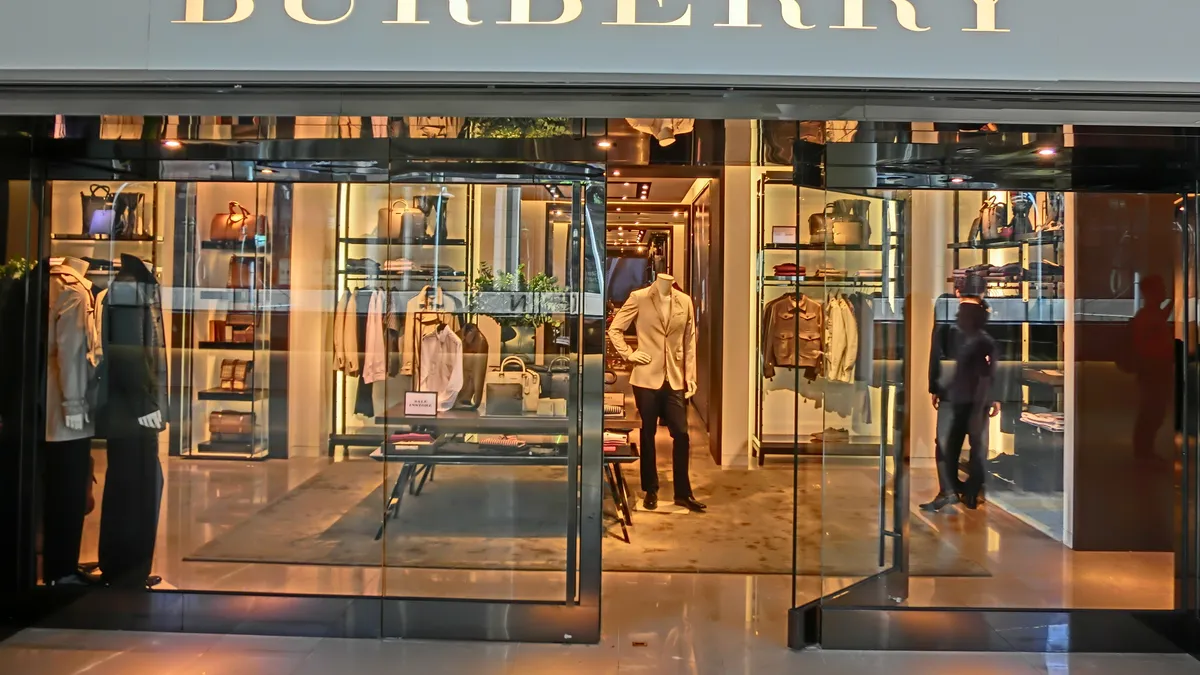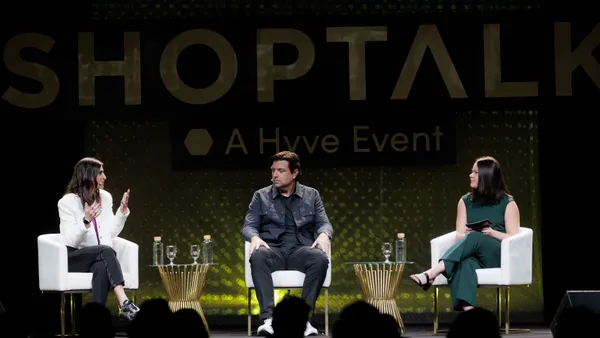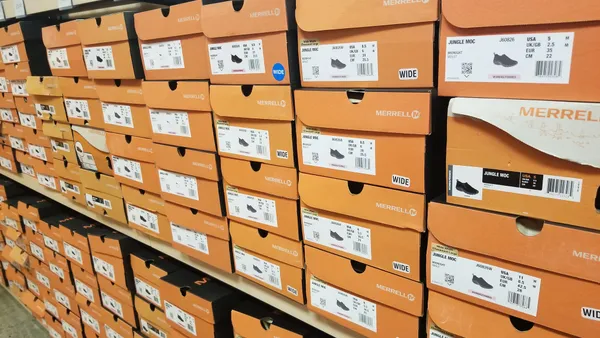Dive Brief:
-
As promised earlier this year, luxury fashion house Burberry made its latest collection available for purchase immediately after it was unveiled on the runway during London’s Fashion Week Monday, Wired reports.
-
The Burberry effort is supported by a chatbot campaign via Facebook Messenger, where users can watch the London Fashion Week shows, peruse images of the newly unveiled styles and ask to interact with a human, VentureBeat reports.
-
Burberry is one of the largest companies to make the move, but designers and brands like Ralph Lauren, Tom Ford and Tommy Hilfiger all jumped on the ready-to-buy trend at New York Fashion Week earlier this month.
Dive Insight:
Burberry’s move to make freshly revealed designs immediately available is widely seen as an imperative. The trend is driven by fast-fashion’s ability to swiftly knock off and sell versions of original designs, as well as the influence of fashion bloggers covering fashion shows.
While some of these changes seem obvious and a long time coming, they're actually untested. And even if they're successful, it’s taking a major overhaul of supply chains that in some ways serve the particular needs of high-end fashion, but in others are simply outmoded. Luxury retailers are behind in technology and have security concerns when it comes to shipping because of the high-dollar value of their goods. They also often have much less inventory of any one release, and that small amount could be scattered at stores or warehouses worldwide.
Luxury customers also expect their items to arrive in premium, carefully prepared packages, and when it comes to clothing, manufacturing cannot be rushed the way it often is with lower-quality fast fashion, requiring specialized logistics. Plus, without the benefit of sales trends, selling immediately misses out on important data that dictate which styles should be produced and which shouldn’t.
The drive toward immediacy in upscale fashion has a decidedly digital influence, according to Chris Paradysz, founder and CEO of digital marketing agency PMX Agency. Luxury brands will likely continue to depend on their stores to stand out because luxury shoppers encounter such a particular, personalized form of attention in stores, Paradysz told , but e-commerce and digital marketing are more important than many realize. “That’s the digital enabler, including the store side, it’s impossible to separate,” Paradysz told Retail Dive earlier this year. “But you can still make it exclusive, you can still curate that experience. It can be a luxurious, exclusive experience.”
Perhaps most importantly, the shift signifies an acknowledgement that consumers, even in the rarified world of luxury retail, are in control. Shelley E. Kohan, VP of retail consulting at store analytics firm RetailNext, notes that many luxury brands, in particular Burberry, are beloved by millennials, more of whom increasingly have the cash to afford them. But with age and extra cash does not come patience. “Customers want it now,” Kohan told Retail Dive earlier this year. “There’s an emotional immediacy attached to that.”














